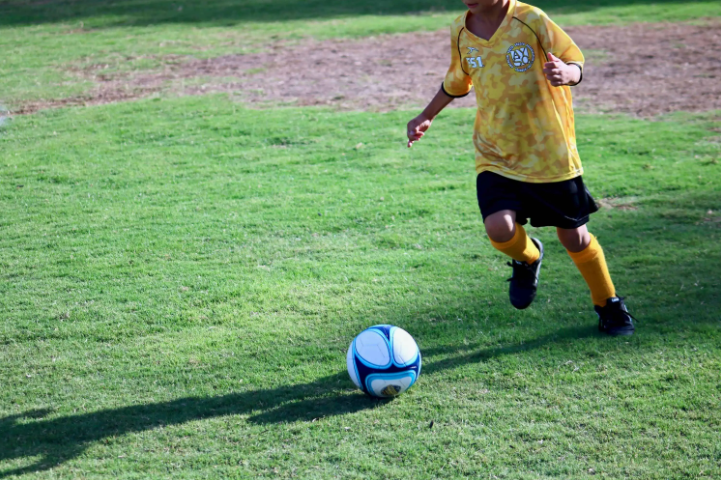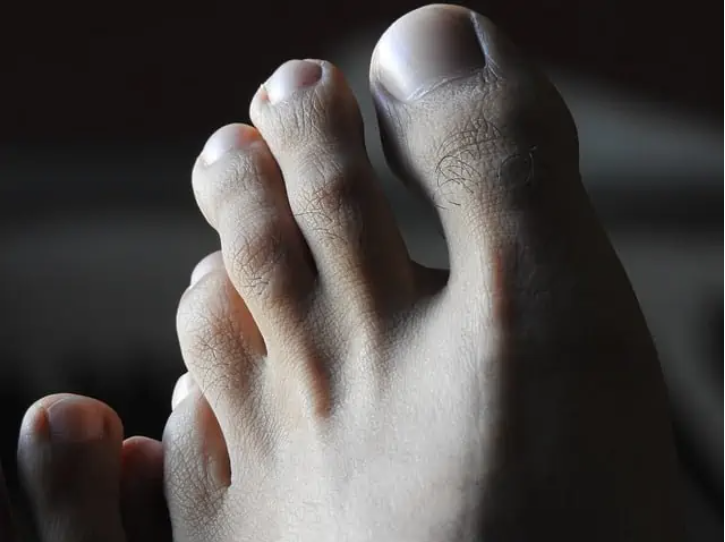Items filtered by date: December 2018
Sever’s Disease: Heel Pain in Children
 Sever’s disease, also known as calcaneal apophysitis, is the result of inflammation at the growth plate of the heel in maturing children. Children’s bones continue to grow until the growth plates completely ossify or become solid. Once the growth plates close, bones stop growing in length. The heel bone, also known as calcaneus, continues to develop until about age 15. An athletically active child, usually around 8-14 may develop Sever’s disease. Sever’s occurs due to the Achilles tendon pulling on the heel bone, causing inflammation at the growth plate.
Sever’s disease, also known as calcaneal apophysitis, is the result of inflammation at the growth plate of the heel in maturing children. Children’s bones continue to grow until the growth plates completely ossify or become solid. Once the growth plates close, bones stop growing in length. The heel bone, also known as calcaneus, continues to develop until about age 15. An athletically active child, usually around 8-14 may develop Sever’s disease. Sever’s occurs due to the Achilles tendon pulling on the heel bone, causing inflammation at the growth plate.
Children may complain of heel pain, especially at the sides of the heel, that is worsened by running or standing on their tiptoes. Patients may also complain of warmth and swelling of the heel. Sever’s disease seems more prevalent in children that play soccer or basketball. The condition is also more common in young patients with tight calves, also known as equinus.
Your Columbus podiatrist may suggest X-rays just to rule out other causes of heel pain such as stress fractures or bone cysts. The condition is self-limiting and pain should subside once the growth plate fuses. If the child is experiencing ongoing pain, your podiatrist may recommend stretches for the calf muscles, heel pads, and splints. They may also suggest that your child limit physical activity and to rest for a period of time. NSAIDs and ice would be recommended for pain relief. In more severe cases, casting may be appropriate to immobilize and offload the area. Call our office today if you have questions or concerns about your child’s heel pain.
Please visit our website for more information or call 614-885-3338 (FEET) to schedule an appointment with us at our Columbus or Gahanna office
Why Do I Have a Stiff Big Toe?

Hallux rigidus is arthritis at the base of the big toe, at the metatarsophalangeal joint. The articular cartilage covering the ends of the bone can erode due to wear and tear or trauma, resulting in stiff and painful motion at the joint. A bony spur may develop at the tops of the bone, preventing full range of motion at the joint during ambulation. The consequence is a stiff big toe, or hallux rigidus.
Hallux rigidus commonly develops in adults between the ages of 30 to 60 years. Risk factors for developing hallux rigidus include history of trauma to the area such as a fracture or hyperextension/hyperflexion injuries at the joint leading to articular damage. Other risk factors include, history or osteoarthritis, rheumatoid arthritis, or gout. Hallux rigidus may also develop due to variances in anatomy that intensify stress on the joint. Symptoms of hallux rigidus include pain with activity especially during push off. People may also experience swelling around the joint, along with a bump that may develop at the top of the joint. Stiffness may develop at the big toe joint, limiting upward and downward motion of the toe.
Your podiatrist will test the range and quality of motion at the joint and also obtain X-rays. Treatment for the condition depends on the extent of joint damage and pain. Your podiatrist may recommend NSAIDs to help reduce inflammation and control pain. Shoegear changes would include getting a stiff soled shoe with a rocker bottom. Other treatments include foot orthoses such as a carbon fiber plate or a Morton’s extension to limit movement at the joint. Your podiatrist may also offer injections at the joint for pain relief.
Depending on the extent of the damage, different surgical procedures may be discussed. A cheilectomy, is a surgery that is usually recommended when the damage is mild to moderate. A cheilectomy involves removing the bone spurs and parts of the bone to allow for joint decompression. Other surgeries that may be recommended including joint fusion or joint replacement with an implant. Call your podiatrist today if you have questions or concerns about big toe joint pain.
Please visit our website for more information or call 614-885-3338 (FEET) to schedule an appointment with us at our Columbus or Gahanna office
